Gun rights and the gun lobby are polarizing conversations across the country. Various states have gone out of their way to pass laws that restrict gun access and expand gun access in turn, and it’s become a conversation about the state’s rights and the responsibility of the federal government to keep their citizens safe.
Contentious Conversations Around Guns
The rise of mass shootings in America, particularly in the last twenty years, has created a deeply contentious conversation around guns. The aftermath of any shooting revitalizes the conversation around guns in a predictable pattern, and the results of the conversations are nearly always the same.
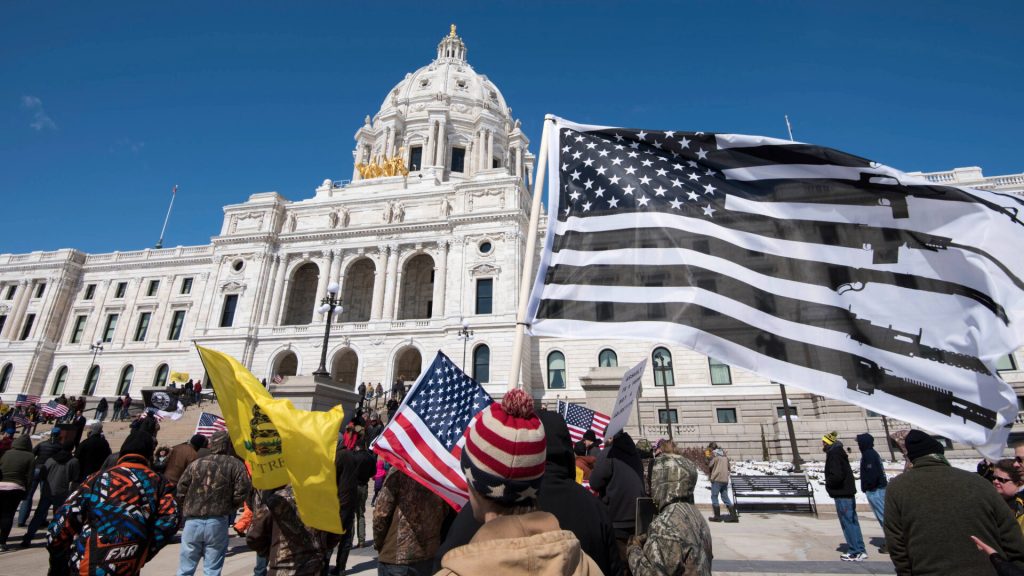
Anti-gun activists believe that guns are the primary cause behind the epidemic of mass shootings in America. While it is true that America does have greater access to guns than other first-world countries, it’s also true that America is the only country with a constitution that grants access to firearms.
America Has the Second Amendment
The Second Amendment of the Constitution, necessarily, centers in many of these conversations around gun rights. The right to bear arms is one that is held by many Americans almost as dearly as the right to free speech or the freedom to practice any religion that you want.

Because of the strength of this conviction around the second amendment, the conversation around gun control and restrictions understandably gets heated. Guns rights lobbyists repeatedly point to the second amendment as the reason by gun restrictions are unconstitutional, and the argument has held water for many years.
The Wording of the Second Amendment
The specific wording of the second amendment is important when entering the conversation around gun rights. Specifically, the language that states that the right to bear arms “shall not be infringed.” When crafting the original bill of rights, many of the amendments that the Founding Fathers added to the Constitution were necessarily influenced by the war that they had just ended with England.
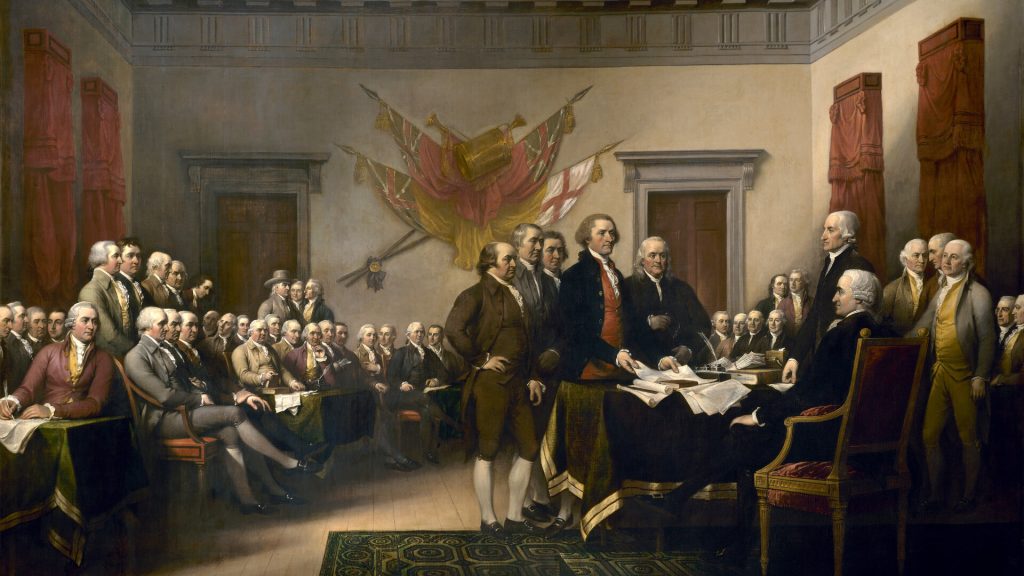
Many of the rights granted in the Bill of Rights, including the right to resist unreasonable search and seizure and, yes, the right to bear arms, were crafted with the intent of allowing Americans to resist against any sort of overpowering government entity. This was seen as a necessary act after the resistance that Americans engaged in against King George III and the British army.
Creating Built-In Resistance
Those early Americans were as staunchly anti-monarchy and anti-establishment as it got, and it’s understandable that the documents that they crafted in the early days of America reflect that particular opinion.
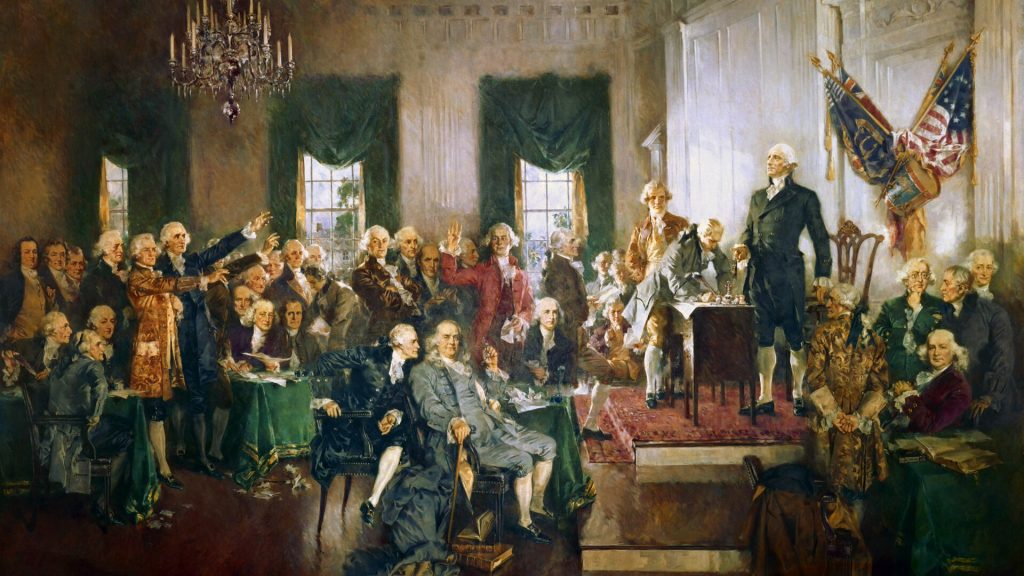
Enshrining the right to bear arms into the Constitution of the United States was one way that the Founding Fathers were able to head off any overpowering government intervention on the part of American citizens. Citizens who were armed were, necessarily, citizens who would be able to defend themselves against an overpowering dictatorship.
Gun Restrictions Are Unconstitutional
The “infringed” language of the second amendment has become an important verbal sticking point for many in the conversation around the right to own a gun. Second amendment absolutists believe that this specific language means that any restrictions on gun ownership are unconstitutional, full-stop.

Multiple states have passed laws regarding guns with that viewpoint in mind. While more liberal states such as California and Washington have been engaged in ongoing efforts to restrict gun usage in the wake of mass shootings, more conservative states such as Texas and Missouri have gone out of their way to expand access.
Ongoing Conversations Around Guns
Indeed, ongoing mass shootings have made the conversation around gun rights and gun access a constant talking point in these more conservative states. Missouri in particular has risen to the top as a state that is willing to protect the individual’s right to bear arms, even in the face of intervention from the federal government.
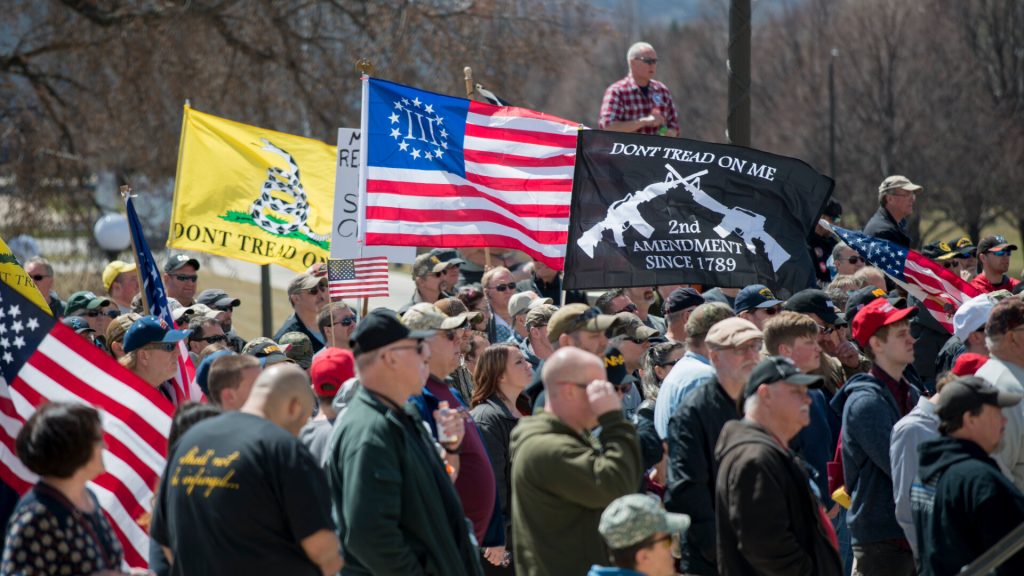
This is especially noteworthy in the wake of the recent shooting at the Kansas City Chiefs’ Super Bowl victory parade on February 14. That particular attack left one person dead and 20 people injured.
Resisting Gun Control Pressure
As always, after a mass shooting, pressure from Democratic and liberal lawmakers to ban guns is intense. Missouri has stood firmly against any sort of gun control pressure, though, refusing to bow down to the gun control lobby.
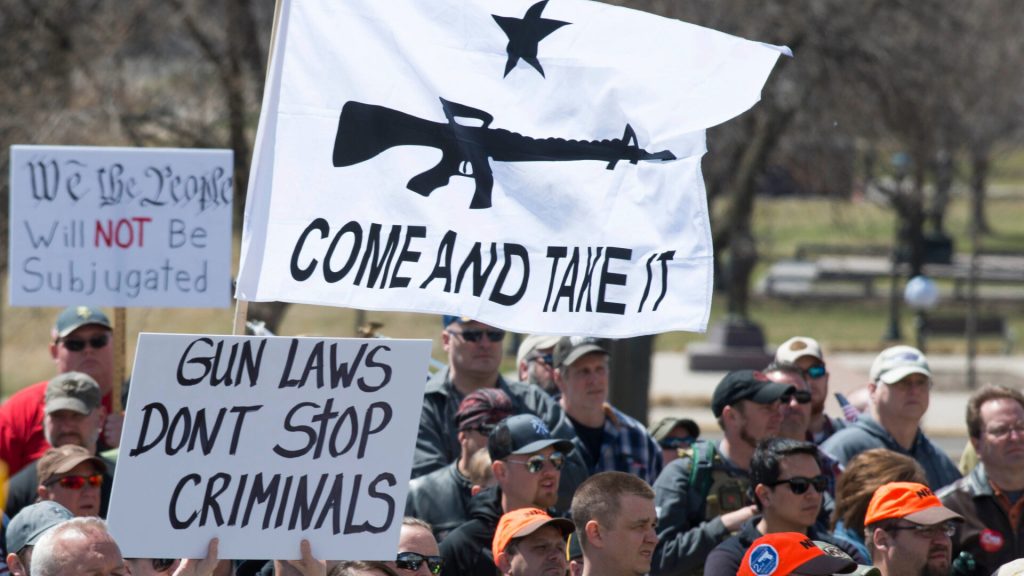
And this is an ongoing conversation in the state. Missouri has been embroiled in a lengthy legal dispute over its gun laws for years, going back to June of 2021 when Republican Governor Mike Parson signed the Second Amendment Preservation Act into law in Missouri.
A State Law Invalidating Federal Law
The language of this particular law is simple, and has one purpose: to declare all enforcement of federal gun control laws completely unconstitutional in the state of Missouri. The language of the law invalidates any federal gun control measures, and has been seen as a significant win on the part of gun’s rights activists.

The popularity of the law in the state of Missouri has no bearing on its actual legality, though, and the federal government filed a lawsuit against the state in February of 2022, following the passage of the Second Amendment Preservation Act.
SAPA Ruled Unconstitutional
The reasoning behind the lawsuit was, in the words of Attorney General Merrick Garland, to allow for federal law enforcement to continue to do their jobs. According to Garland, the SAPA “impedes criminal enforcement operations in Missouri.”
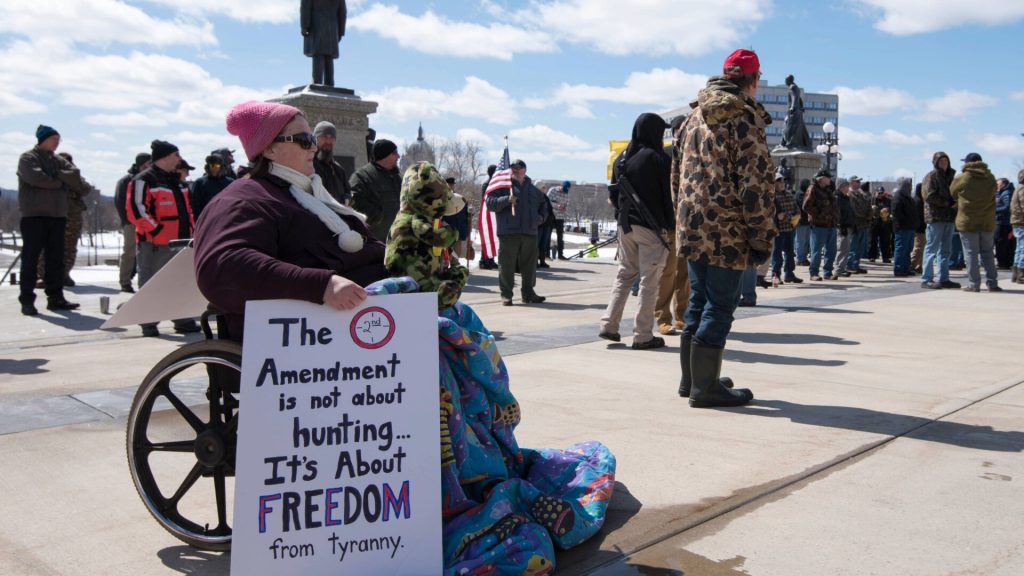
This was, of course, not the end of the conversation around the new law. The lawsuit made its way through the court system in Missouri, and in March of 2023, a U.S. District Judge ruled that the law was unconstitutional, blocking the state from enforcing the measure.
A Court Date to Defend SAPA
Missouri appealed the ruling, and the court date to defend the SAPA came shortly after the shooting at the Kansas City Chiefs’ parade. This event led to greater calls for gun restrictions in the state of Missouri, a call that painted the court case around the SAPA in a fairly negative light.

Despite this negative press, Missouri Attorney General Andrew Bailey has made it clear that he is determined to defend the SAPA in court.
The Constitutionality of the Second Amendment
“We will continue to lead the way in defense of the 2A,” he stated in a social media post. “Joe Biden doesn’t get to pick and choose which parts of the Constitution are legitimate,” he continued, pointing out the hypocrisy of the United States government trying to enforce what he sees as deliberately unconstitutional laws.
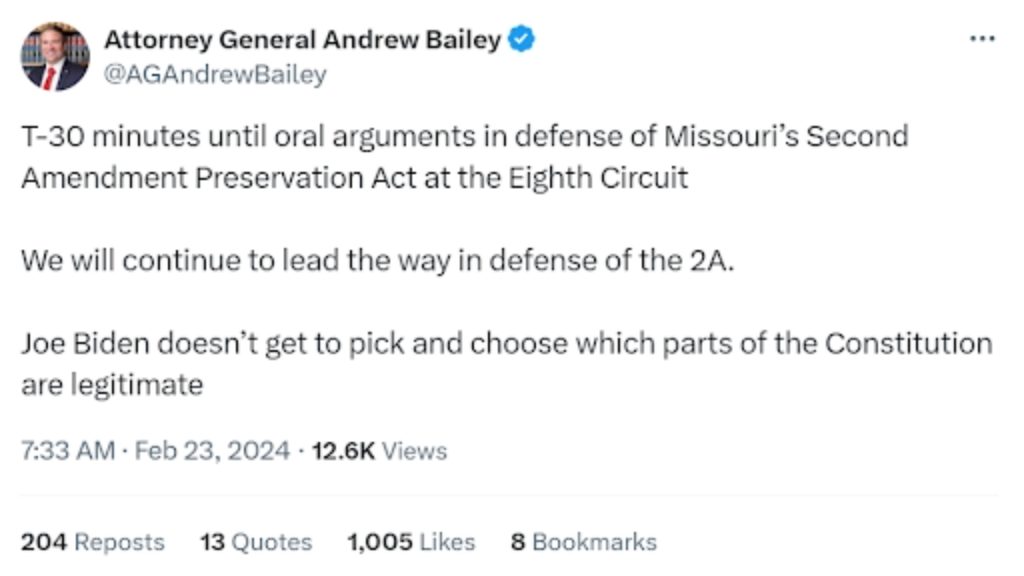
Regardless of whether Missouri is able to win on principle regarding the lawsuit surrounding the SAPA, it doesn’t appear that the state is going to cave to the gun control lobby. There are other enforcement methods that can be put in place regarding Second Amendment rights, as other conservative states have implemented effectively.
Gun Rights Heavily Scrutinized
Despite these efforts, gun rights are being heavily scrutinized and addressed on a federal level. State enforcement of looser restrictions can only go so far when a liberal government is going out of its way to restrict public access to guns on a federal level.

In some states, these restrictions are working. In Hawaii, the State Supreme court recently invalidated the individual right to bear arms. In Maryland, the legislature is attempting to pass a bill that would require gun owners to pay firearm liability insurance in order to exercise their constitutional right.
Americans’ Right to Bear Arms
Many conservatives believe that gun rights are under attack, and the ongoing battle around SAPA in Missouri only highlights this fact. Americans are granted the right to bear arms in the founding documents of the nation, and conservative states are fighting vigorously for these rights to be maintained.

Where the conversation crosses the line of federal enforcement of safety is still uncertain, and it doesn’t appear that the talking points will become clearer. States like Missouri are staunch in their desire to maintain a fully unimpeded Second Amendment right to bear arms, and unless an amendment is passed repealing the Second, these legal challenges and disputes will likely continue.






